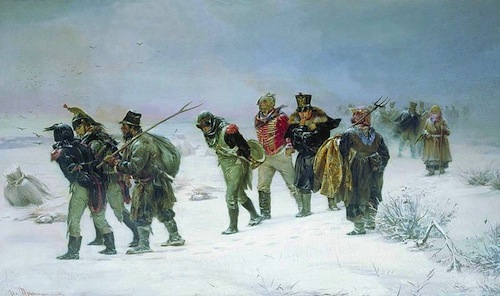The Prose Poem as Mysterious Man with an Accent
BY Idra Novey

Like many immigrants, the prose poem arrived in the U.S. too late in its development to ever pass as wholesomely American. Something in its tone, in the weight of its silences, will always give it away as having come here from somewhere else. It will never entirely lose its accent. In anthologies and magazines, it makes other poems feel uneasy. The other poems want to ask:
Where are you really from?
Did you really want to come here?
But the prose poem, already an outlier, never feels obliged to answer. The dodging of such questions is part of its allure. Like nonfiction, it defines itself by what it is not. It knows that many poets see it as an oxymoron, like True Fiction, or Real Fantasy. If those poets open a collection and find it is full of paragraphs they will say, What is this lazy, formless stuff? But the prose poem is a form, and writing it well is incredibly hard. Look at this excellent one by Charles Simic:
I am the last Napoleonic soldier. It's almost two hundred years later and I am still retreating from Moscow. The road is lined with white birch trees and the mud comes up to my knees. The one-eyed woman wants to sell me a chicken, and I don't even have any clothes on.
The Germans are going one way; I am going the other. The Russians are going still another way and waving good-by. I have a ceremonial saber. I use it to cut my hair, which is four feet long.
Simic could have written this poem in free verse: the rhythm and control of the lines immediately announce themselves as the lines of a poem. But in free verse the poem would have lost the ramped-up absurdism that comes from telling all the details in a rush. As in many prose poems, this one ends on a startling image which Simic then takes even further. Not only is the last Napoleonic soldier standing in mud and cutting his hair with a ceremonial saber, his hair also happens, Rip Van Winkle-like, to be four feet long. When the reader first comes to this closing detail about the soldier’s hair it is amusing and surprising, but it also alters the emotional weight of the whole poem.
While working on my second book of poems, I read a lot of Simic and Matthea Harvey and other masterful prose poets I admire. I was teaching at a women’s prison and was writing weird, surreal drafts of poems about jury duty and people strapping on wings to fly over giant penitentiaries to see what was happening inside.
I saw my mother get arrested when I was a child and several friends suggested that maybe that was the thread that would connect the poems. But to depend on autobiography seemed wrong to me. I didn’t want the book to hinge on a personal tie to incarceration, as it would suggest that the only poets who can, or should, write about American prisons are those who have a personal connection to it, and I don’t agree with that line of thinking. The disastrous state of the American corrections system is a civil rights issue that will only be addressed in a meaningful way when everyone is agitated about it.
And so I began solely writing prose poems: slippery, ambivalently tolerated form that it is in this country. I found exploring that ambivalence was itself a kind of form. For the century we’re living in, in which so much is in flux, to write in a mode that is still coming into its own in the United States feels right, and exciting. As Wong May writes in her poem, “On Crossing the Centuries:”
The choice is Poetry & Poetry’s The Terror of that Voice We who have no country but our century.
Idra Novey is a novelist, poet, and translator. Her collections include Take What You Need (Viking, …
Read Full Biography

